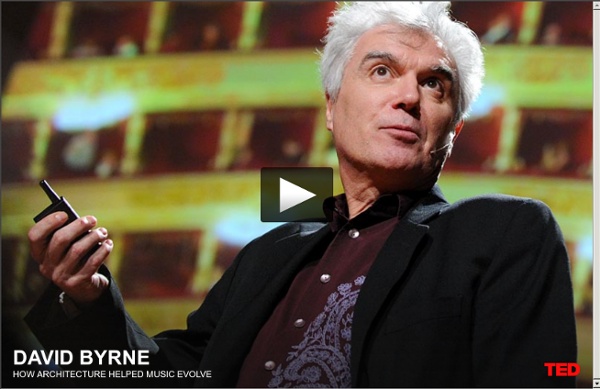



Community Berlin's own Henrik Schwarz has always had an ear for music, but didn't learn a traditional instrument or music theory — the computer has always been his weapon of choice. But as an electronic artist who loves to perform with live musicians, he needs to be able to find the right notes fast. To help, Henrik used Max for Live to build the Schwarzonator, which he has now updated and relaunched as the Schwarzonator II. Using the Schwarzonator II The Schwarzonator II automatically fits notes to a selected musical scale by transposing any MIDI notes that you play, making it easier to play and improvise with other musicians. The latest update now allows users to easily create their own scales and chord progressions, and even upload them to the web. Schwarzonator II Companion Device The Schwarzonator II also comes with a companion device, called 'Little Brother,' which applies chord changes from the Schwarzonator II onto other tracks.
Working backward to solve problems - Maurice Ashley See Maurice Ashley's blog here. He's the international chess grandmaster, and his motto is, "Your passion is your window to the world." In chess, retrograde analysis is a computational method used to solve game positions for optimal play by working backward from known outcomes (e.g. checkmate), such as the construction of endgame tablebases. In game theory at large, this method is called backward induction. For most games, retrograde analysis is only feasible in late game situations of reduced complexity, such as a chess position where few pieces remain in play. Here is a list of requirements (the whole handbook, actually) for a chess grandmaster.
Musipedia: Musipedia Melody Search Engine Glenn Wilson: The Power of Music Bio Dr. Glenn Wilson As well as being one of Britain's best-known psychologists, Glenn Wilson is the Visiting Gresham Professor of Psychology. He has appeared on numerous television and radio programs and has published more than 150 scientific articles and 33 books. He is an expert on individual differences; social and political attitudes; sexual behavior, deviation and dysfunction; and psychology applied to the performing arts. Apart from being a professional psychologist, Dr. To download this program become a Front Row member. ZOOM IN: Learn more with related books and additional materials. Encyclopædia Britannica Article music Art concerned with combining vocal or instrumental sounds for beauty of form or emotional expression, usually according to cultural standards of rhythm, melody, and, in most Western music, harmony. music on britannica.com © 2010 Encyclopædia Britannica, Inc.
AmbientMusicGuide.com - A Guide To Essential Ambient & Downt Kit Kat (Club) Die Veranstaltungen fanden jeden Samstagabend statt und zogen neben Goths auch Angehörige anderer Szenen, wie Punks oder Skinheads, an. Die musikalische Bandbreite umfasste hauptsächlich Post-Punk, Gothic Rock und elektronische Musik. 1989 schloss das Kit Kat. Simon Hobart starb am 23. Oktober 2005 an den Folgen eines Sturzes. Er wurde 41 Jahre alt. Simon Hobart und der Kit-Kat-Club
Planet Of Sound - Chris' World Of Music Blog Damon Albarn and the Elizabethan magical mystery man Musician Damon Albarn's latest work has been inspired by an Elizabethan mastermind. But who was Dr John Dee? There are not many people alive who could pull off being an influential political adviser, a mathematician and scientist, and a magician and mystic all at the same time. But during the reign of Elizabeth I, Dr John Dee was such a man - an influential polymath who got some of his information from a seance and a crystal ball. Now, the purported inspiration for Shakespeare's enigmatic magician Prospero in The Tempest and Marlowe's devil-dealing Doctor Faustus has taken someone else captive with his mystical charms. Blur and Gorillaz frontman Damon Albarn is writing and performing the music for Dr Dee: An English Opera, which opens in July as part of the Manchester International Festival. "I'm not walking around in a ruff and tights," he says in an interview with Radio 4's John Wilson, but he admits a profound affinity with the cosmic Elizabethan mastermind. Universal language
Earworms: Why songs get stuck in our heads 6 March 2012Last updated at 04:19 ET By Rhitu Chatterjee PRI's The World Music has a tendency to get stuck in our heads. You know the experience - a tune intrudes on your thoughts and plays, and replays, in a never-ending loop. It happened recently to me. Several weeks ago, I was at home on a Sunday morning when, for no apparent reason, three words popped into my head - "Funky Cold Medina". That's the name of a song performed by rapper Tone Loc. I kept hearing the lyrics - "Cold coolin' at a bar, and I'm looking for some action. When the song reappeared in my head, I could hear my friend singing it again and again... and again. I was stuck with it for nearly a day and a half, before it finally went away. But it left behind a nagging question. "I personally couldn't believe how little there was in terms of research on this phenomenon," says Dr Vicky Williamson, a music psychologist who started studying it a few years ago. "It seemed to happen to me very frequently." Earworm offenders